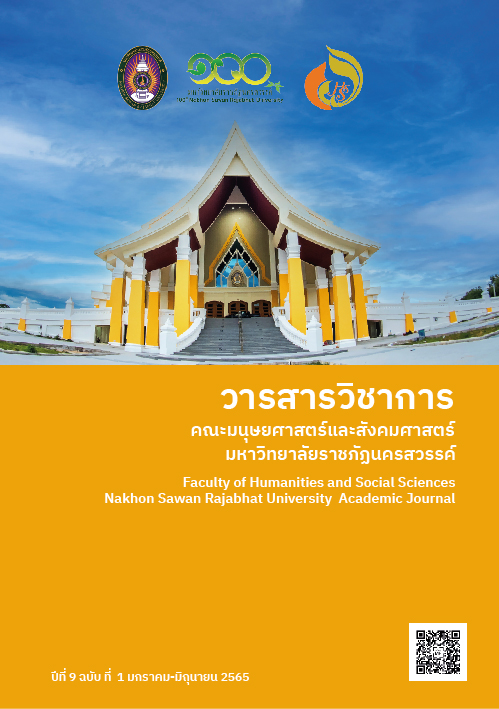Briefly the Comprehensive Musicianship Concept for Shenyang Conservatory of Music, Liaoning Province
Main Article Content
Abstract
In this article, the author was commissioned by the Department of Piano to review documents related to the Comprehensive Musicianship for the development of documentation for teaching piano practice by searching for documents from academic databases in China and the West. In summary, a comprehensive music teaching concept developed from an experimental research project at the Institute of Wisconsin. Concept-based teaching principles that consider the development of musical creativity, musical performance, and critical listening and analysis are summarized as follows:
- Setting goals and planning good rehearsals that develop musical skills and understanding.
- Participation in a variety of status roles for example, arrangers, composers, music analysts, musicians, music performers and music listeners
- 3. Comprehensive music teaching, content integration, and increase opportunities for learners to gain experience in and outside of Western music.
- 4. Assessment of learning by teachers, learners, and viewers at every step of the experience.
Article Details

This work is licensed under a Creative Commons Attribution-NonCommercial-NoDerivatives 4.0 International License.
References
ณรุทธ์ สุทธจิตต์. (2536). พฤติกรรมการสอนดนตรี. กรุงเทพมหานคร:
สำนักพิมพ์แห่งจุฬาลงกรณ์มหาวิทยาลัย.
An Chenwei. (2019). Research on the Influence of Comprehensive Music
Sense Teaching Method on Primary School Students' Street
Dance Actions and Music Cooperation. (Master's Thesis, Wuhan
Institute of Physical Education). Doi: 10.27384/d.cnki.gwhtc
.2019.000198
Baccala, A. C. (2020). Elements of Comprehensive Musicianship:
A Survey Addressing the Attitudes and Approaches of Middle School
and High School Choral Directors. (Doctor of Philosophy, the Graduate
Faculty of Auburn University)
Austin, J. R. (1998). Comprehensive musicianship research: Implications
for addressing the national standards in music ensemble classes.
Update: Applications of Research in Music Education, 17(1), 25.
Retrieved from https://www.proquest.com/scholarly-
journals/comprehensive-musicianship-research-implications/
docview/195807171/se-2?accountid=207845
Byo, S. J. (1999). Classroom teachers' and music specialists' perceived ability
to implement the national standards for music education.
Journal of Research in Music Education, 47(2), 111-123.
Cargill, J. A. (1986). The relationship between selected educational
characteristics of band directors and their acceptance and use
of comprehensive musicianship. (Doctoral dissertation, University of
Houston) (AAT 8709938)
Chang, Dong. (2020). A Study on the Countermeasures of Comprehensive
Musicianship Approach in the Senior Music Course of Primary
School. Bohai University. (Master's Thesis, Bohai University)
Coy, Christopher. (2012). THE USE OF COMPREHENSIVE MUSICIANSHIP
INSTRUCTION BY A MIDDLE SCHOOL BAND DIRECTOR: A CASE
STUDY. (Master of Thesis, The Graduate College of Bowling,
Green State University). https://etd.ohiolink.edu/apexprod/ rws_etd
/send_file/send?accession=bgsu1351202430&disposition=inline
Kerzmann, O. L. (2017). Comprehensive musicianship through performance
in the high school choral classroom. (Master of Education, Division
of Music College of Arts and Sciences, Graduate School Minot State
University Minot, North Dakota) https://www.proquest.com/
docview/1972649936? pq-origsite=gscholar&fromopenview=true
Lihua, Ping. (2013). Analysis on the Enlightenment from Comprehensive
Musicianship Course on the Teaching of Vocal Music Performance.
(eds.) Proceedings of 2013 3rd International Conference on Social
Sciences and Society (ICSSS 2013). Volume 37 (pp.114-117).
Mark, M. L. (1996). Contemporary music education (3rd ed.). Belmont,
CA: Schirmer.
Sindberg, L. K. (1998). The Wisconsin CMP Project at Age 21: Building on its
success with a flexible five-part model for planning ensemble
instruction, the Wisconsin CMP project is going strong after
twenty-one years. Music Educators Journal, 85(3), 37-42.
. (2012). Just good teaching: Comprehensive musicianship through
Performance (CMP) in theory and practice. Plymouth, UK: Rowman
& Littlefield Publishers, Inc.
Strange, C. M. (1990). The development of a beginning violin curriculum
Integrating a computer music station with the principles of
comprehensive musicianship (Doctoral dissertation, Teachers
College, Columbia University).
Willoughby, D. (1990, Autumn). Comprehensive! musicianship. The Quarterly,
(3), pp.39-44. (Reprinted with permission in Visions of Research
in Music Education, 16(1), Summer, 2010). https://opencommons
.uconn.edu/cgi/viewcontent.cgi? article=1320&context=vrme
Xiong, Zhiyao. (2019). Integrated teaching of musical composition-
interpretation musical talent Comprehensive Permutian Chip.
(Master's thesis, Shanghai Institute of Music). https://kns.cnki.net/
KCMS/detail/detail.aspx?dbname=CMFD202001& filename=1019124490.nh10.27319/d.cnki.gsyyy.2019.000109
. (2020) Integrated Music Pedagogy: Interpretation " Comprehensive
Musicianship " Chinese music. (06), 172-181.
doi: 10.13812/j.cnki.cn11-1379/j.2020.06.019.
Xu, Aodan. (2008). Discussion on Piano Major Teaching Reform in Ordinary
College Musicology. Yuefu New Sound (Journal of Shenyang
Conservatory of Music), (03) 148-150.
Zhang, Qi. (2021). Research on application of teaching method "CM" in
singing classroom in grade 3 in elementary school
(Master's thesis, Shanghai Normal University)
DOI: 10.27312/d.cnki.gshsu.2021.001466
Zhang, Wenwen. (2009). Discussion on several Problems Teaching in
piano Teaching. Changchun: Northeastern Normal University.
Zheng, Yali. (2014). Exploration of Piano Teaching Reform in University
Musicology. Music Space, (24), 133.
Zhuang, Ying. (2018). Application of teaching method "CM" in Music
Fundamentals Course for children 6-9 years old.
(Master's thesis, Shanghai Institute of Music.)
https://kns.cnki.net/KCMS/detaildetail.aspx?dbname=CMFD201901
&filename=1018133467.nh


